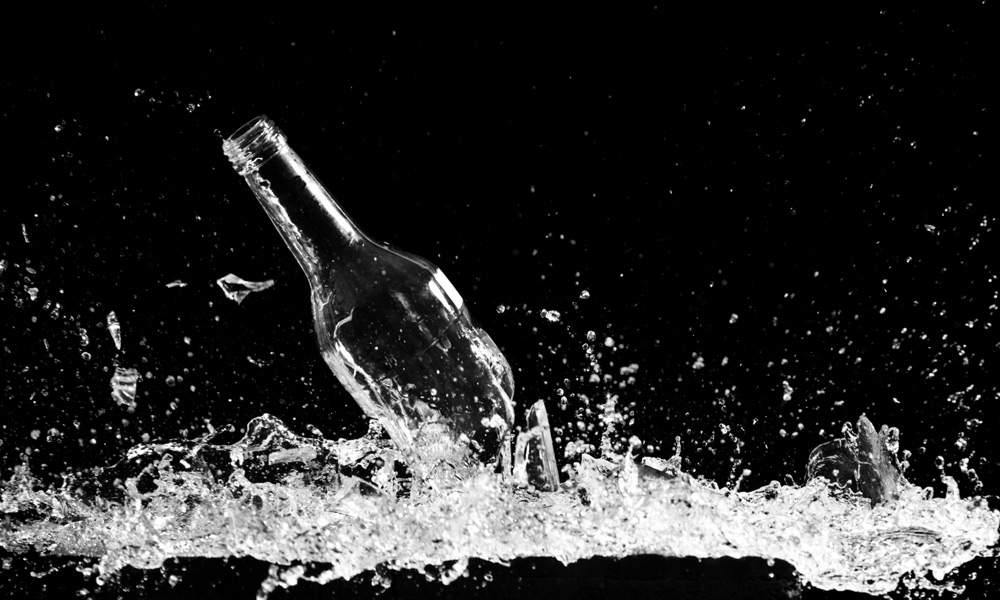
Hospitality Association Urges Bars to Dump Russian Vodka
New York City bar and restaurant owners are backing a boycott on Russian food and drink—most notably, vodka—in response to the country's tough stance on homosexuality.
It may be getting tougher to find Russian vodka in New York City.
Bartenders set aside their shot glasses and poured the spirit into the streets of Manhattan on Monday at a protest organized by the United Restaurant and Tavern Owners of New York. The organization, which represents 3,000 establishments, bars, and restaurants in the Big Apple, is calling for a citywide boycott of all Russian food and drink.
Why dump Russian vodka? Bar and restaurant owners have joined gay-rights activists in a burgeoning boycott of Russian goods in response to the country’s increasing crackdown on homosexuality. In late June, Russian President Vladimir Putin signed a law outlawing “propaganda of nontraditional sexual relations” anywhere a child might hear. The law, among other things, prohibits gay pride rallies as well as same-sex displays of affection such as holding hands.
The vodka boycott was first proposed on July 24 by Seattle writer Dan Savage and is spreading around the globe. Bars in Los Angeles, Chicago, and London have pulled Russian vodka from their selections. At least 200 bars and restaurants in New York are participating.
Paul Hurley, president of the United Restaurant and Tavern Owners, urged people to drink American-made alcohol instead. He poured out a bottle of the popular brand Stolichnaya.
Stoli’s parent company, SPI Group, released a statement [PDF] saying that it opposes “the recent dreadful actions taken by the Russian Government.” The statement also notes that its headquarters are in Luxembourg and that its vodka is distilled in Latvia, not Russia. An executive with the company told Time magazine that SPI has been feuding with the Russian government, which has sought to nationalize the brand, and that owner Yuri Shefler was forced out of the country more than 10 years ago.
Skeptics say it’s unlikely that a boycott of vodka, which seems primarily to target one brand that may or may not even be Russian, will pressure the Russian government to ease off its treatment of gays and lesbians. So activists are turning to bigger fish.
Some gay-rights proponents are urging the United States and other nations to boycott the 2014 Winter Olympics in Sochi, Russia. They claim that gay athletes and spectators will be subject to Russia’s discriminatory laws and that their safety may be at risk. Others, including activist and Star Trek actor George Takei, are encouraging the International Olympic Committee to move the Winter Olympics to another country.
One athlete planning to participate in the Games offers another suggestion: New Zealand speed skater Blake Skjellerup says he intends to wear a gay-pride pin in Sochi. Such an action would conceivably put him in violation of Russia’s “gay propaganda” ban.
With the Winter Olympics just six months away, we can expect the volume of protests over Russia’s human rights record to increase.
How should industry associations decide whether to take a stand on international laws and relations? Tell us what you think in the comments.
(iStockphoto/Thinkstock)






Comments